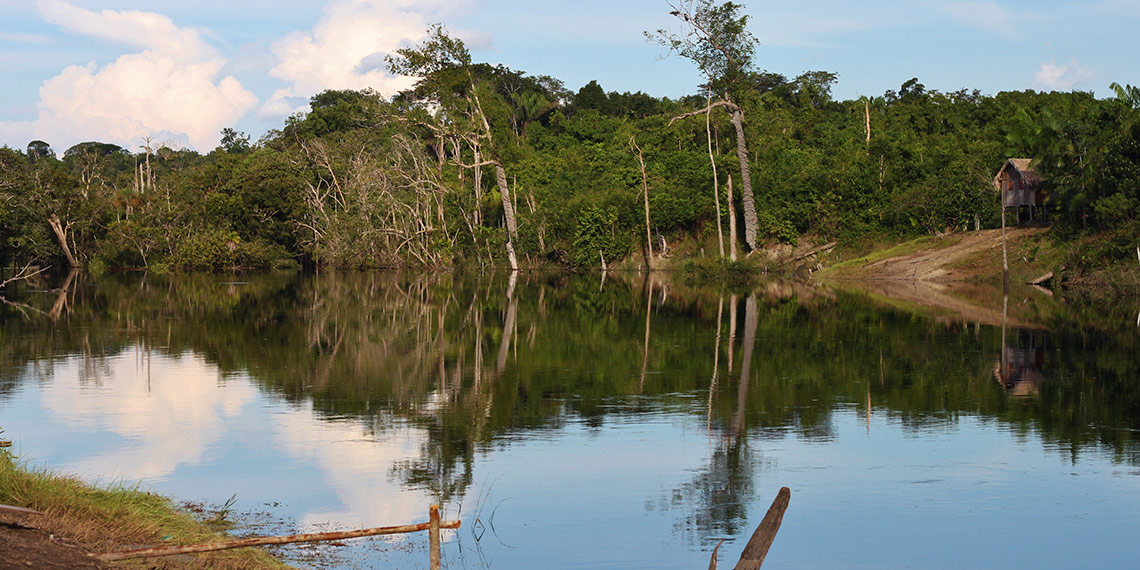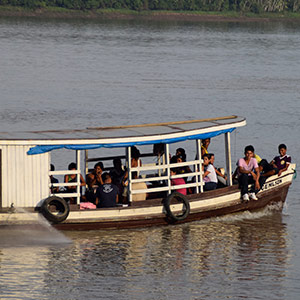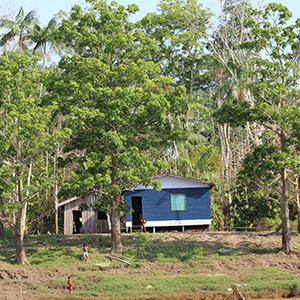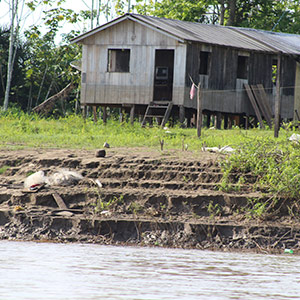What is REDD+?
REDD+ is Reducing Emissions from Deforestation and Degradation. REDD+ is a climate change mitigation strategy to help stop the destruction of the planets' forests. Their wide-scale destruction contributes significantly to climate change. Forests are essential to the health of the planet and the people that inhabit it. They help regulate our climate and provide innumerable benefits.
When forests are destroyed, cleared, deforested or degraded they emit carbon, as this releases the carbon they have stored throughout their lifespan and contribute to climate change. Protecting and restoring the world's forests helps to prevent and reduce carbon emissions to prevent the effects of climate change.
When designed well, actions to implement REDD+ activities have the potential to deliver a range of environmental and social benefits in addition to climate change mitigation. REDD+ brings positive change with real and direct benefits to the planet. Project areas are home to beautiful and unique biodiversity species, many of which can be found on the IUCN Red List of endangered species.
There are a number of forest protection activities that come under the REDD+ project umbrella:
- Reducing Emissions from Deforestation
- Reducing Emissions from Forest Degradation
- Conservation of forest-carbon stocks
- Enhancement of forest-carbon stocks
- Sustainable Management of Forests
REDD+ reduces the emissions that would be caused by deforestation. Deforestation and forest degradation are the second leading cause of global warming, responsible for about 15% of global GHG emissions, which makes the loss and degradation of forests a major issue for climate change. There is increasing importance placed on the protection of our existing forests, and their existing carbon stocks, and the issues of deforestation and forest degradation must be effectively tackled in order to mitigate climate change effectively. Preventing deforestation is a highly effective way to reduce or avoid carbon emissions, as deforestation itself is a significant source of carbon emissions, and also causes other environmental and social problems.
In addition to helping to mitigate climate change and reduce the release of carbon stocks, preventing deforestation and forest degradation also supports sustainable forest management, and conserves the ubiquitous ecosystem.
Our REDD+ project delivers multiple benefits - in addition to mitigating climate change, Celestial Green Ventures REDD+ project supports livelihoods, maintain vital ecosystem services and preserve globally significant biodiversity.

How REDD+ projects are put into practice
REDD projects must reduce emissions from deforestation and forest degradation while enhancing carbon uptake within the project area also. To protect vast areas of rainforest at risk from deforestation requires project developers such as Celestial Green Ventures need to understand some certain basic information before commencing the project development.
- The number of hectares where deforestation will be avoided
- The amount of carbon that is sequestered in the forest, that is at risk of being released back into the atmosphere if the trees are removed.

The intervention of REDD projects supports improvements to land use and forestry protection, through a combination of actions and activities that are carried out in partnership between Celestial Green Ventures and other parties that are involved. It enables carbon project development comprises of forest protection, biodiversity conservation, cultural preservation and community benefits.
The achievement of multiple social and environmental benefits - while avoiding risks - can make REDD+ a positive mechanism for the wider population, including the local communities who live in forest areas.
Through the Celestial Green Ventures approach to their REDD project strategies, this means that forests that are managed in a way that maintains carbon stocks and enhances biodiversity that can be highly effective in the fight against climate change. Increased protection of forests leads to greater permanence of the carbon stocks and by engaging with the local communities, this can promote long-term changes for the benefit the people and the planet.





